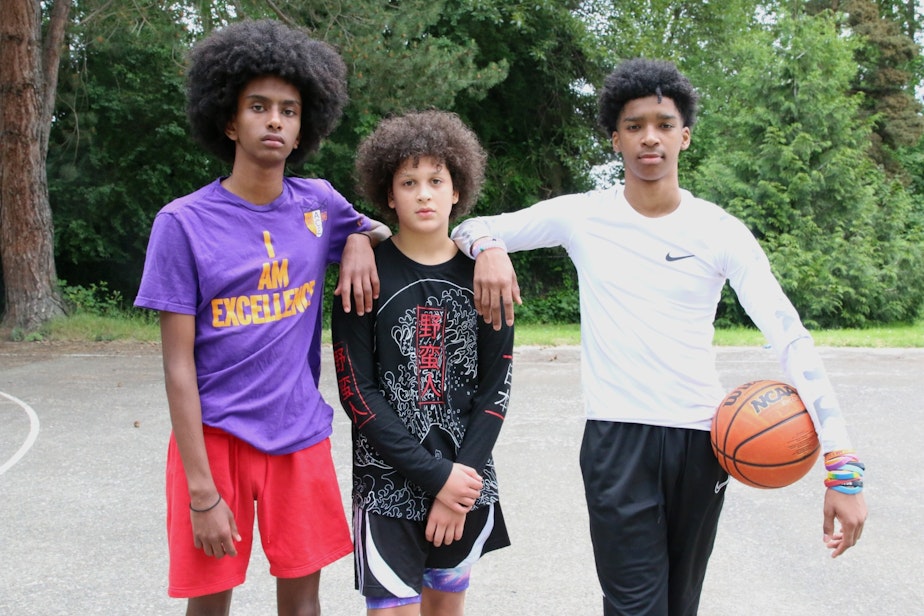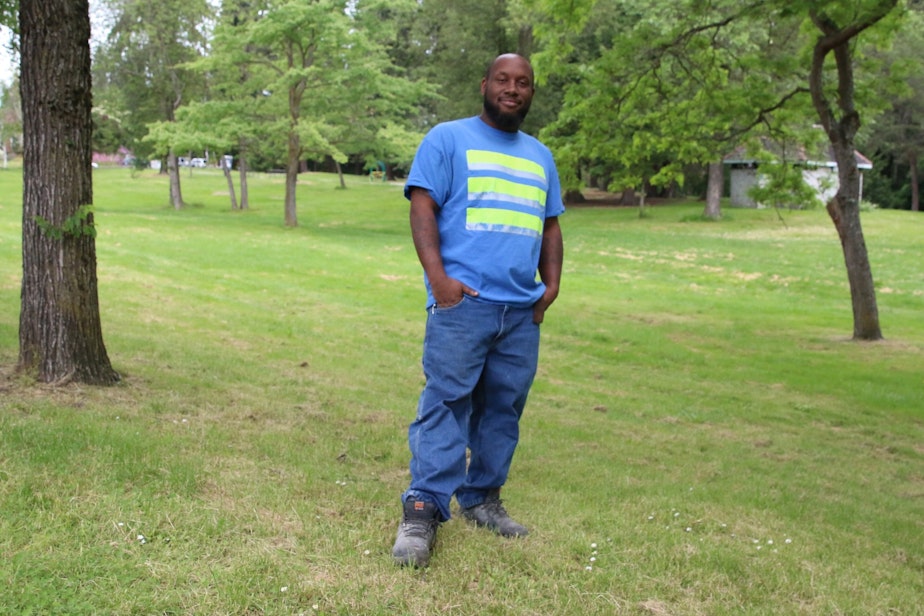Seattle residents weigh right to protest against COVID risks

In Seattle, hundreds, maybe thousands of people continue to protest the death of George Floyd at the hands of police. But for every person out there protesting, there are others who can’t be there or have chosen not to be.
A
ttending a protest during a pandemic is not an easy decision.
The stakes are high. At a protest on Capitol Hill Monday, a woman who gave her name as Lay explains why she came to protest: “Because it’s bad out here. And I'm tired of it. We’re dying at the hands of white officers and they’re not acknowledging it at all.”
At a park in Rainier Beach on Tuesday, a small group of friends are playing basketball. They’ve been weighing the decision on whether to protest or not. Armante Fields and Eyoub Endris have made opposite choices.
Fields is staying home, “because of the pandemic," he explains. "I don’t want to put myself in the center to be exposed to anything of that nature. "
"We've got to understand that it’s not 'Just lose your mind and do what you want to do,'" Fields says. "You've got to really think about your actions, because the rioting’s not helping, the corona’s not helping, and bringing them together is just not going to be good, at all.”
Sponsored
But his friend Endris feels differently. Endris says he is a person who says what's right. He has to say his mind and push for change.
“Like with protests and stuff, there's this one on Sunday in Othello," he said. "I think I’m going to go to that one. I want to be there to help. I don’t want to just stay back. I don’t like being the one person to stay back and just wait.”
Fields offers a counter argument: The violence that sometimes occurs has allowed people in power to disregard the message Endris and others bring to protests.
“If you really think about it, they want you to be the bad guy," he says. "They want you to act out and stuff. So we’re basically giving them the idea that that’s who we really are because we’re acting like that in the time of this moment."

A
t other side of the park, Jay Burdine is part of a skeleton crew of city workers doing park maintenance. He says we need to remember black people who’ve been killed by police.
Sponsored
But he's also worried that gathering to protest will spread the virus and that will hurt his community too.
“And I think that’s kind of sad, personally," he said. "Just because we were on the brink of going into phase two" of Governor Inslee's four phase plan for reopening the economy.
“With phase two, a lot of things were going to be be reopened and a lot of people were going to get back to work whether it was part-time work or whatever the situation may be."
"And now these businesses have got to spend extra money to try to put the windows back in and get everything back right. And now, that’s taking extra money out of some of these people’s mouths that really and truly need it.”
Burdine draws a comparison between achieving police reform and containing the coronavirus epidemic. They're similar he says, in that both require good communication and a strategy for the long haul.
“Society dictates how we all move," he said. "And if society as a whole doesn’t do what they’re supposed to do, then it’s going to be like a revolving door: over and over again.”
He’s talking about waves of coronavirus. But the thing that started these protests was another thing that keeps happening over and over again: the killing of black men and women by police.
Esmy Jimenez contributed to this story.


